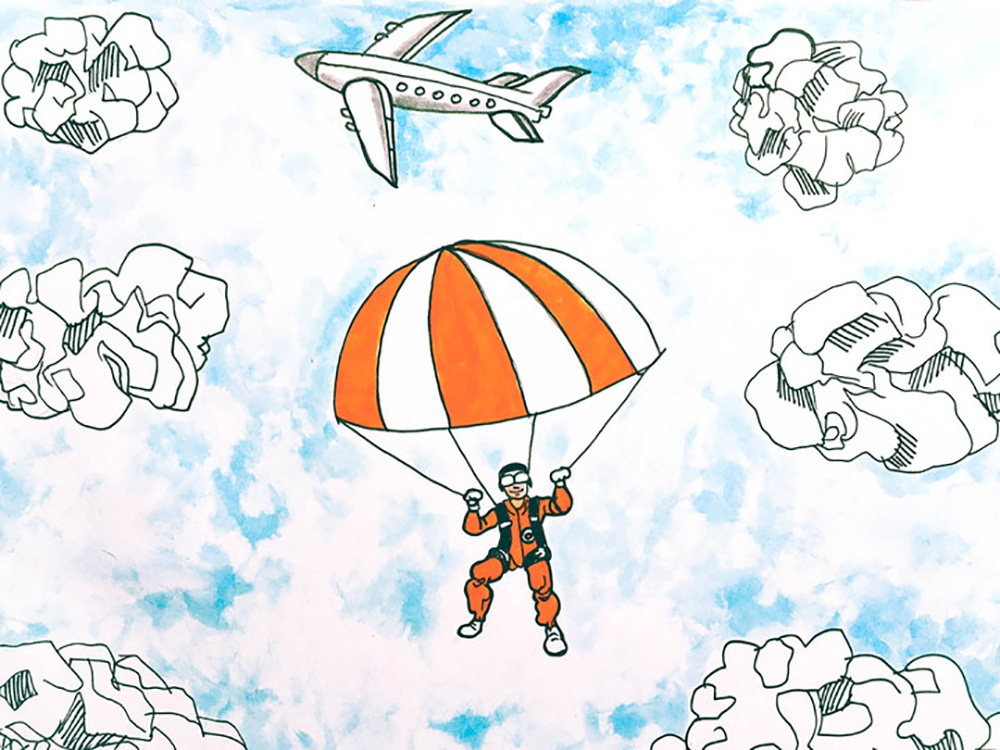From Rome to Dubrovnik, from Venice to Disneyland, from Banff to Whistler, the photographs and drone shots looked surreal. Like studio sets built for cancelled films, streets typically elbow-to-elbow with crowds and running with rainbows of melted gelato appeared deserted. It was spring 2020 and global tourism, among the drivers of the world economy, had vaporized.
But unlike some previous apocalypses, this one is probably temporary. Sixty-five million years ago, the dinosaurs did not have the opportunity to convene and discuss the Future of Mega-Fauna in a Post-Meteor Environment. The enforced halt in tourism on the other hand has even been seen by some in the industry as an opportunity — not to profit, but to adapt.
For now, the prevailing mood is a desperate desire for a return to something like normality. “Right now, everyone’s just trying to get business,” says Greg Oates, vice-president at California-based consulting firm MMGY NextFactor. “You have 80 per cent of people in Banff without a job.”
“Tourism was hit the worst, hit the earliest, and it will be the longest coming out,” says Nancy Small, CEO of Tourism Richmond. “No cruise ships, no meetings, no conferences, no events. Very few flights. Many businesses are not going to open this summer. Many may never reopen.”
An April study from Destination Canada estimated a potential decline in tourism revenue of up to $9.3 billion, with Canadian tourism revenue failing to reach 2019 levels until 2024.
But Oates and Small are among those who believe the crisis of 2020 could have an upside — a chance for the tourism sector to rethink its prevailing business model.
“It’s given us time to reflect,” Oates says. “We’re having conversations that we wouldn’t have had before. When you talk to tourism boards, residents and consumers, everyone wants to come back and do things more effectively and more efficiently.”
The reinvention drive was well underway before 2020. Until recently — approximately 3,000 years ago, it seems — the problem was over-tourism. “Before COVID we were talking about the shift from ‘destination marketing’ to ‘destination management,’” Oates says. “Not just to promote communities but help build communities.”
That conversation has been paused, but when the industry revives the issues will still be there. And if there is to be a revolution in the tourist industry, it may indeed get as nasty as the French one. “You have your hardcore conservationists at one end of the spectrum and at the other you have your business owners that have no respect for anything but the bottom line,” Oates says.
Unrestricted tourism is ultimately as destructive as any other form of unbridled consumption. “We need to do a better job of understanding: at what point are we doing a disservice to the environment, to the community and potentially harming a destination permanently through over-use?” Oates asks.
Of course, when you have a cash cow and a golden goose it can be tough to close down the petting zoo. Tourism means revenue, and more tourists equals more money. “The most toxic word in the global tourism industry is capacity,” Oates says. “Nobody wants to talk about capacity limits.”
Managing capacity doesn’t have to mean fewer people, according to Oates. It can mean shifting visits evenly throughout the week. Oates cites the example of Banff and Lake Louise, where tour buses are now required to make reservations at destinations. “It’s not to say that there are fewer people in a week,” Oates says. “It’s just about not having three-hour lineups.”
Oates says there are other good examples out there. One is the city of Victoria, led by Mayor Lisa Helps. He cites Victoria’s Food Eco District, a distinctive zone full of sustainable restaurants, edible gardens, green spaces and pollinators in the middle of the city (bounded on the north and south by Johnson and Broughton streets and east/west by Douglas and Quadra).
Victoria has drafted a broader economic plan called Victoria 3.0, intended to help the city come out of the COVID-19 crisis on track to a healthy and sustainable economic future. “It’s a triangle,” Oates says. “You have government/economic development, you have tourism, and you have community. You have Destination Greater Victoria, formerly Tourism Victoria, which aligns with that.”
Internationally, New Zealand has also been in the forefront of the move to rethink modern tourism. The island nation has been a popular destination for people wanting to experience the spectacular real-life backdrops for The Lord of the Rings movies.
“They used to have the same strategic goals as everywhere else,” Oates says. “Raise volumes, raise revenue, raise time on site, increase air access — all these drivers to get more money and more people into the destination. They’ve completely changed that now.”
“Their four strategic goals are aligned with the pillars of sustainability — economic, environmental, socio/cultural, and they have a fourth category they call visitor sustainability. In other words, you can focus on the sustainability of culture, environment and economics, but you also have to make sure that you’re still getting lots of visitors.”
Not everyone believes the New Zealand government is on the right track — some have criticized the decision to make Tourism New Zealand the lead agency in the initiative, in effect self-policing.
One move New Zealand took last year was a tourist levy of $35 per visitor. They are not the first — Bhutan has long required visitors to hire local tour companies, a policy that functions as a de facto tourist levy.
Some destinations have attempted other methods. “Venice put up turnstiles to charge visitors coming in,” Oates says. “And that didn’t work out so well. People were damaging them. There was the idea that if you put up turnstiles you are turning it into a Disneyland. There’s different ways to charge a levy to visitors, whether it’s at the port or the airport.”
The COVID-19 crisis may have brought a halt to the levy approach, at least temporarily. In 2019 Edinburgh proposed a two-pound tourist levy to be tacked onto accommodation prices per night, and the Scottish government began a public consultation of the idea. In March the Scottish government shelved the idea for the time being.
In fact, levies have given way to incentives in some countries and regions. Japan and Sicily are among the destinations seeking to lure travellers with subsidies.
Phase Three of B.C.’s pandemic support plan is now getting underway, scheduled to run until September. But Small believes the reopening will be too late for some.
“By the time that happens we will have lost a significant portion of what is typically an incredible summer in B.C.,” she says. “However, we are a resilient industry, we have a lot of entrepreneurs who may repurpose or rethink or redo.”
Domestic tourism will certainly help, but Small doesn’t think it will make up for the lack of international travellers.
“If you’ve changed your travel plans, you’re not going to go to Europe but you’re going to go to Tofino, you’re not going to be spending nearly as much,” she says. “In my own mind it’s probably in the neighbourhood of 40 to 50 per cent. In addition to that, so many people have lost their jobs there will be fewer people with disposable income to spend on travel.
“We’re trying to understand that new mindset in the post-travel restriction world, what assurances they’re going to need,” Small says. “What’s going to make us feel that we are ready to venture outside of our own four walls?”
“The conversation has definitely shifted,” Oates admits. But he believes that when the COVID crisis finally recedes the pendulum will swing back, and the discussions on a better way forward will resume. “We need to come back with potentially better models. Everyone is still focused on this idea that tourism has to benefit a wider segment of the community. And that includes the environment.”
Oates sees at least one particular reason to have hope for the future. “Anecdotally when we speak to people under 40 or so, themes around sustainability, the environment, the community, equality, inclusivity, are much more forward than other themes,” he says. “We can see there’s a lot more interest from young leaders, which is going to help drive some of the solutions we are talking about.
“There’s a huge opportunity for us as a province,” Small says, “because we have such an amazing tourism experience here in B.C. There will be people out and about, once it’s OK to do that.” ![]()
Read more: Travel, Coronavirus

















Tyee Commenting Guidelines
Comments that violate guidelines risk being deleted, and violations may result in a temporary or permanent user ban. Maintain the spirit of good conversation to stay in the discussion.
*Please note The Tyee is not a forum for spreading misinformation about COVID-19, denying its existence or minimizing its risk to public health.
Do:
Do not: